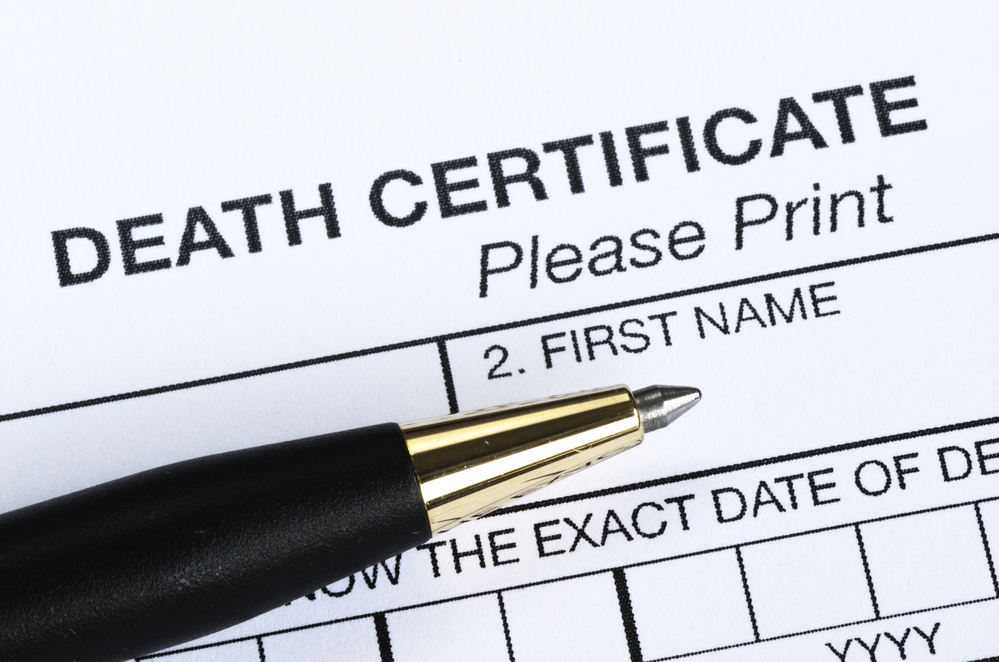What You Should Know about Filing Taxes for a Deceased Loved One
 When a family member passes away, their tax returns are probably the furthest thing from your mind. Unfortunately, amid the grieving process, there are many other processes that must get underway and details that must be attended to. We understand that filing your own taxes can be complicated enough; filing for a deceased loved one can be even more difficult, not only in terms of the process itself, but in the emotions that it can bring up as well. Here’s what you should know about filing taxes for a deceased loved one.
When a family member passes away, their tax returns are probably the furthest thing from your mind. Unfortunately, amid the grieving process, there are many other processes that must get underway and details that must be attended to. We understand that filing your own taxes can be complicated enough; filing for a deceased loved one can be even more difficult, not only in terms of the process itself, but in the emotions that it can bring up as well. Here’s what you should know about filing taxes for a deceased loved one.
Determine If They Needed to File a Return
This may seem like an odd question to you, but the fact of the matter is that many senior citizens on fixed incomes actually are not required to file a tax return. Of course, it’s not uncommon for their loved ones to be unaware of whether or not their senior family member was required to file a return, so if you don’t know the answer to this question, you can use the IRS’s online tool, which is found here. If using this tool reveals that your loved one was exempt from filing tax returns, then this part of your work is done. However, if they were required to file a return, keep reading.
Who Can File the Return for Them?
Another uncertainty many surviving family members face in these situations is who actually can file the return on behalf of the deceased. The responsibility for this task generally falls to whoever is left in charge of their estate after they pass away. This person is sometimes called an executor or administrator, but the IRS refers to them as the deceased’s personal representative. This individual, generally named in the person’s will, is able to file the tax return on behalf of the deceased.
If the deceased individual has a surviving spouse, and a personal representative was named in the will, then the personal representative can file a joint return for the surviving spouse and the deceased; this can be a way to offer support and relief of responsibilities from a grieving husband or wife. If there is no personal representative named, the surviving spouse is still able to file a joint return for both themselves and their deceased partner.
Is the Filing Process Different?
The process for filing a deceased individual’s tax return is much the same as filing your own taxes: You will need to report all of their income for that tax year, up until their death, and claim any tax deductions or credits for which they qualify. This is generally done on Form 1040 or 1040-SR. In the “Name” field on the return, you will write the name of the deceased individual for which you’re filing the return, but your own name and address will go in the “Address” field. If filing a joint return on behalf of a surviving spouse, the surviving spouse’s name and address would go in the “Address” field instead of your own. Before filing the return, you must write “DECEASED” across the top of the tax return, as well as the individual’s name and the date of their death.
Aside from these small changes, filing a return for your deceased family member is not all that different from filing your own tax return every year. However, the true difficulty in this process lies in fully accounting for the individual’s finances, which typically are not familiar to the surviving family members. It can be difficult to ensure that you’re accounting for all of their income and assets appropriately, as well as claiming all of the appropriate deductions and credits. Taxes become much more complicated when the finances in question are not your own, which is why we strongly encourage you to work with one of our tax experts to navigate these difficulties when filing taxes for a deceased loved one.
When Does It Need to Be Filed?
It’s important to be aware that the tax deadline is the same for a person’s final tax return as it is for any other tax return they filed during their life. Their last return will be due on April 15th the year after they passed away. If an individual passes away prior to filing the previous year’s tax return, you might have to file two returns on their behalf. For example, if your grandmother passed away in February of 2023, before she filed her 2022 tax return, you would have to file her 2022 tax return by April 15, 2023, as well as filing her 2023 tax return by April 15, 2024, for any income she earned in those first two months of the year before her death.
If you’re responsible for filing a loved one’s final tax return, we encourage you to reach out to Demian & Company, CPAs. Our compassionate and experienced tax accountants can guide you through the process, so you can focus more on the things that matter.